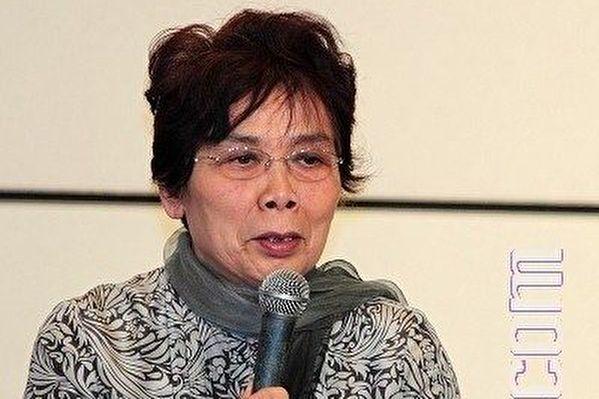Beijing stepped up the surveillance of well-known Chinese historian and writer Zhang Yihe recently, as it has on veteran journalist Gao Yu. Speaking to The Epoch Times, Zhang Yihe said she specifically wished to remind people to speak up when their rights are violated.
Eighty-year-old Zhang Yihe described leaving her home recently to get bottled water. “At six in the morning, two plainclothes officers from the National Security Bureau were following me,” she said.
She condemned China’s communist regime for violating her personal rights with unnecessary harassment. “People must speak up,” Ms. Zhang told the Chinese-language edition of The Epoch Times.
“I feel my personal rights were violated,” she said.
Furious at being followed, she said she refused to tolerate what she described as a humiliation. “I hit the plainclothes officers … I was in prison for 10 years—I know how to defend my rights,” she said. She indicated that if necessary, she will carry a weapon with her to defend her rights.
Ms. Zhang said the Chinese people have been too naive and too agreeable. “It does not matter if you’re young or old, or your level of education—you must speak up when your personal rights are infringed,” she insisted.
“Speak up on the internet—people will hear it,” she said.
Ms. Zhang said the surveillance has escalated to an extreme level this year. “It’s abnormal,” she said.
“It’s not just for the so-called sensitive days,” she said, indicating that her colleagues and students at the Chinese Academy of Art have received instructions from the communist regime to keep a distance from her.
“I can’t even have unplanned outings with friends,” she said.
Surveillance of Artists
Zhang Yihe is a well-known Chinese writer. Her father, Zhang Bojun, was a politician and intellectual, and was denounced as “China’s No. 1 Rightist” during the anti-rightist movement of 1957.After also being classified as a rightist in 1970, Ms. Zhang was sentenced to 20 years in prison as a so-called counter-revolutionary criminal. She was released in 1979, and was subsequently appointed to the Chinese Academy of Art.
Her books, such as “The Past Is Not As Foggy” and “Memoir of the Last Chinese Opera Singers,” gave vivid details of the atrocities perpetrated by China’s communist regime, and were banned by the Chinese Communist Party (CCP).
The CCP ordered the suspension of the weekly newspaper in April 1989, and the newspaper ceased publication on June 11, 1989.
On July 3, Ms. Gao posted a message from Beijing on Twitter. “Two policemen from the National Security Bureau were here early in the morning,” she said. The police told her they would be there all day.
She wrote, “The U.S. embassy was already heavily guarded … the defense against the United States has intensified like this. What does this mean? Which one is strong, the United States or China?”
She said that she is not the only one to have been placed under increased surveillance, however. “An old friend called me at 10 a.m. and wanted to invite me out for lunch, but the restaurant canceled her reservation,” she said.
Chinese netizens expressed their concern about the increased surveillance of both Ms. Zhang and Ms. Gao.
One netizen with the moniker “Big Brother 1984” wrote, “[The CCP] with millions of soldiers, thousands of tanks, and varieties of missiles, was frightened by an old lady in her 80’s. Where is their self-confidence?”
Another Chinese internet user, “Silent Voice,” wrote, “A person with thought is naturally an enemy [of the communist regime].”




